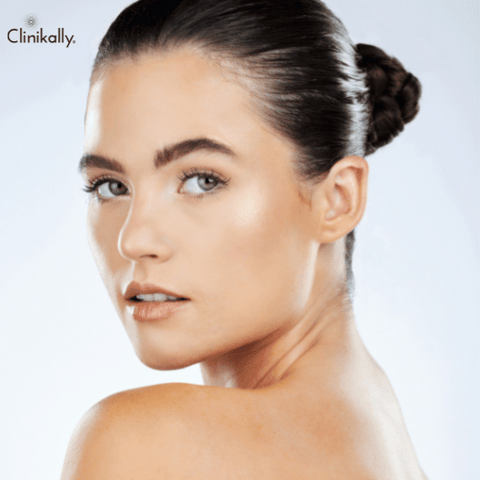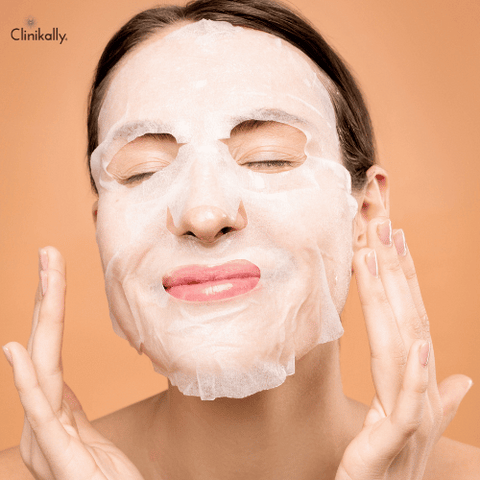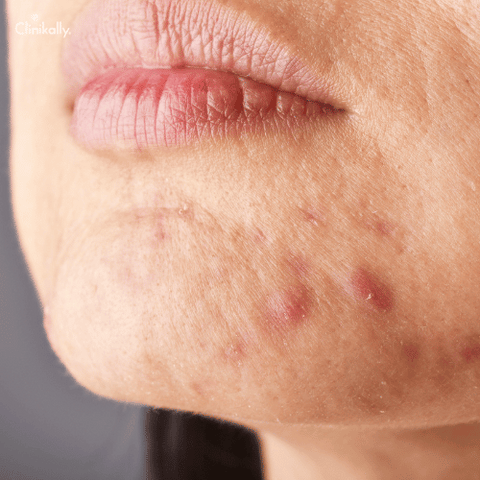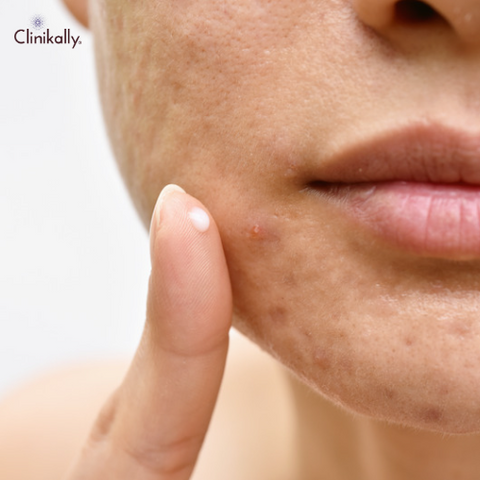Hormonal blemishes, those stubborn, inflamed spots that often appear at the most inconvenient times, can prove to be a persistent adversary in the pursuit of clear and radiant skin. These blemishes, fuelled by hormonal imbalances, can leave individuals feeling frustrated and self-conscious. Yet, there is hope. By delving into the complexities of hormonal blemishes, gaining a comprehensive understanding of their causes, triggers, and impact, and arming oneself with effective strategies, individuals can embark on a journey towards overcoming this common skin issue. In this comprehensive guide, we explore the intricate relationship between hormones and blemishes, uncovering the underlying factors that contribute to their formation. We dive deep into the science behind hormonal imbalances, shedding light on the role of hormones in skin health and how they influence the development of blemishes.
Additionally, we examine the various triggers that can exacerbate hormonal breakouts, from stress and diet to environmental factors and lifestyle choices. Armed with this knowledge, we then turn our attention to practical strategies for managing hormonal blemishes. We delve into skincare routines, highlighting the importance of proper cleansing, targeted treatments, and specialized ingredients that can help rebalance the skin and alleviate breakouts. Furthermore, we explore lifestyle adjustments, such as stress management techniques, dietary modifications, and sleep hygiene, that can have a profound impact on hormonal balance and overall skin health. Moreover, we discuss the role of medical interventions, such as hormonal therapy and prescription medications, in the treatment of severe hormonal blemishes.
Lastly, we address the emotional impact of hormonal blemishes and provide guidance on cultivating self-acceptance, building confidence, and seeking support throughout the journey to clear skin. By comprehensively understanding hormonal blemishes and equipping ourselves with effective strategies, we can navigate this skin concern with knowledge, resilience, and determination, ultimately reclaiming our confidence and achieving the complexion we desire.
Decoding Hormonal Blemishes: Causes, Triggers, and Impact

Skin blemishes are a common concern for many individuals, affecting self-esteem and confidence. While various factors contribute to the formation of blemishes, hormonal imbalances often play a significant role. The intricate relationship between hormones and the skin has been the subject of extensive research, shedding light on the causes, triggers, and impact of hormonal blemishes. Understanding this complex interplay is crucial for effective treatment and management of these skin conditions. In this section, we delve into the world of hormonal blemishes, unraveling their underlying causes, identifying triggers, and exploring the far-reaching impact they can have on individuals' lives. By decoding the mysteries of hormonal blemishes, we aim to empower readers with knowledge to navigate their skincare journeys with confidence and clarity.
The Connection Between Hormonal Imbalance and Blemish Formation
Hormonal blemishes primarily occur due to an imbalance of hormones in the body, notably the androgens such as testosterone. Fluctuations in these hormone levels stimulate the sebaceous glands in our skin to produce excessive sebum, an oily substance that, when mixed with dead skin cells, can clog pores, leading to inflammation and, subsequently, breakouts. Such hormonal imbalances are common during puberty, menstrual cycles, pregnancy, and menopause, explaining why hormonal acne is a common complaint across different stages of life.
Identifying Common Triggers for Hormonal Breakouts
Hormonal breakouts, also known as hormonal acne, are a common skin condition that occurs due to fluctuations in hormone levels, particularly androgens like testosterone. These breakouts are often characterized by deep, cystic acne lesions that tend to appear around the jawline, chin, and cheeks.
While hormonal breakouts can vary from person to person, there are some common triggers that can contribute to their occurrence. Here are a few factors that can influence hormonal breakouts:
-
Menstrual cycle: Many individuals experience hormonal breakouts around the time of their menstrual cycle. The fluctuations in estrogen and progesterone levels during different phases of the cycle can lead to increased oil production and clogged pores, resulting in breakouts.
-
Hormonal changes during puberty: Adolescence is a period of significant hormonal changes, and this can often lead to the development of hormonal breakouts. Increased androgen levels during puberty stimulate the sebaceous glands, leading to excess oil production and the formation of acne.
-
Hormonal fluctuations during pregnancy: Pregnancy is another time when hormonal fluctuations can trigger breakouts. Some women experience an increase in acne during pregnancy due to changes in hormone levels, particularly during the first trimester.
-
Hormonal imbalances: Certain medical conditions, such as polycystic ovary syndrome (PCOS), can cause hormonal imbalances in the body. PCOS is associated with higher androgen levels, which can contribute to the development of hormonal breakouts.
-
Stress: Stress can affect hormone levels in the body, leading to breakouts. When we experience stress, the body releases cortisol, which can stimulate the sebaceous glands and result in increased oil production. This, in turn, can contribute to acne breakouts, including hormonal acne.
-
Skincare and cosmetic products: Certain skincare and cosmetic products, such as heavy moisturizers or oily foundations, can clog pores and worsen hormonal breakouts. It's important to use non-comedogenic (non-pore-clogging) products that are suitable for acne-prone skin.
-
Diet: While the relationship between diet and hormonal breakouts is still being researched, some studies suggest that high-glycemic index foods, dairy products, and foods rich in saturated fats may contribute to acne development. However, the impact of diet on hormonal breakouts can vary among individuals.
It's worth noting that while these triggers can contribute to hormonal breakouts, the underlying cause of acne is multifactorial and can involve a combination of factors, including genetics, lifestyle, and overall skincare routine. If you're experiencing persistent or severe hormonal breakouts, it's best to consult a dermatologist who can provide personalized advice and treatment options.
Understanding the Impact of Hormonal Changes on Skin Health
Hormonal fluctuations not only lead to acne but also affect overall skin health. Changes in estrogen and progesterone levels can lead to changes in skin's texture, oil production, and resilience, making it more prone to issues like dryness, sensitivity, and premature aging, alongside breakouts.
Fighting Back: Effective Approaches to Managing Hormonal Blemishes

Dealing with hormonal blemishes can be a frustrating and challenging experience for many individuals. These pesky skin issues, often fueled by hormonal fluctuations, can disrupt one's confidence and self-image. However, there is hope. With a comprehensive understanding of the causes and triggers of hormonal blemishes, individuals can employ effective approaches to manage and combat them. In this section, we explore a range of strategies and techniques that have proven successful in fighting back against hormonal blemishes. From skincare routines and lifestyle adjustments to medical interventions and holistic remedies, we delve into a plethora of options that empower individuals to regain control over their skin health. By adopting these tried-and-tested approaches, individuals can embark on a journey towards clearer, healthier skin, and ultimately restore their self-assurance.
Developing a Hormonal Blemish-Friendly Skincare Routine
Developing a skincare routine that is suitable for hormonal blemishes can help manage breakouts and keep your skin healthy. Here are some tips to consider when creating a hormonal blemish-friendly skincare routine:
-
Gentle Cleanser: Start your routine with a gentle cleanser that is specifically formulated for acne-prone skin. Look for cleansers that contain ingredients like salicylic acid or benzoyl peroxide, as they can help unclog pores and reduce acne-causing bacteria. Avoid harsh or abrasive cleansers that can strip the skin of its natural oils, as this can lead to increased oil production and potential irritation.
-
Non-Comedogenic Products: Choose skincare products, including moisturizers, serums, and sunscreen, that are labelled as non-comedogenic or oil-free. These products are less likely to clog your pores and contribute to breakouts. Look for lightweight formulas that won't feel heavy on your skin.
-
Spot Treatments: Consider using spot treatments that contain ingredients like benzoyl peroxide or salicylic acid to target individual blemishes. These ingredients can help reduce inflammation and promote faster healing. Apply spot treatments directly to the affected areas following your cleansing step.
-
Moisturize: It's important to moisturize even if you have oily or acne-prone skin. Opt for lightweight, oil-free moisturizers that won't clog your pores. Look for moisturizers that contain ingredients like hyaluronic acid or ceramides, as they can help hydrate your skin without exacerbating breakouts.
-
Sun Protection: Protecting your skin from the sun is crucial, as certain acne treatments can make your skin more sensitive to UV rays. Choose a broad-spectrum sunscreen with an SPF of 30 or higher, and apply it daily, even on cloudy days. Look for non-comedogenic sunscreens that won't clog your pores.
-
Avoid Overwashing: While it's important to keep your skin clean, overwashing can strip away natural oils and disrupt the skin's barrier, leading to increased oil production and potential irritation. Stick to cleansing your face twice a day, in the morning and evening.
-
Be Mindful of Makeup: If you wear makeup, choose products that are labelled as non-comedogenic or oil-free. Avoid heavy, pore-clogging foundations and opt for lighter formulations or mineral-based makeup. Additionally, make sure to remove your makeup thoroughly before going to bed to prevent pore blockage.
-
Lifestyle Factors: Along with your skincare routine, consider adopting healthy lifestyle habits that can support overall skin health. This includes maintaining a balanced diet, managing stress levels, getting enough sleep, and avoiding touching or picking at your blemishes, as this can lead to further inflammation and potential scarring.
Remember, everyone's skin is unique, so it may take some trial and error to find the skincare products and routine that work best for you. If you're struggling with persistent or severe hormonal blemishes, it's advisable to consult with a dermatologist who can provide personalized recommendations and treatment options.
Targeted Treatments for Hormonal Acne: Ingredients to Look For
Certain ingredients have demonstrated effectiveness in treating hormonal acne. Retinoids, for example, help promote cell turnover, preventing clogged pores. Alpha and beta hydroxy acids (AHAs and BHAs) work to exfoliate the skin and unclog pores. Also, niacinamide helps regulate sebum production, while ingredients like tea tree oil offer natural antibacterial properties.
Lifestyle Modifications for Minimizing Hormonal Breakouts
Your lifestyle plays a significant role in managing hormonal acne. A diet rich in antioxidants and low in processed foods and sugars can help balance hormones, while regular exercise encourages blood circulation and detoxification. Adequate sleep is also essential for skin health, as it's during sleep that the skin heals and regenerates.
Taking Control: Addressing Underlying Hormonal Issues
Hormonal imbalances can wreak havoc on various aspects of our health, including the condition of our skin. When it comes to managing hormonal blemishes, it is crucial to address the underlying hormonal issues to achieve long-term results. In this section, we delve into the importance of understanding and addressing the root causes of hormonal imbalances that contribute to skin problems. We explore the intricate connection between hormones and skin health, shedding light on how factors such as diet, stress, and lifestyle choices can impact hormonal balance. By gaining insight into these underlying issues, individuals can take proactive steps towards rebalancing their hormones and alleviating the burden of hormonal blemishes. From dietary adjustments and stress management techniques to seeking medical guidance, we explore a range of strategies to empower individuals in taking control of their hormonal health and achieving lasting improvements in their skin.
Seeking Professional Guidance: Consulting a Healthcare Provider
Hormonal blemishes often indicate an underlying hormonal imbalance. Consulting with a healthcare provider can help you understand the root cause of your breakouts and provide solutions tailored to your specific needs. They might suggest options like birth control pills, spironolactone, or certain lifestyle modifications to address the root cause of your hormonal acne.
Hormonal Balancing Strategies: Diet, Exercise, and Hormonal Balancing Strategies: Diet, Exercise, and Sleep
Maintaining a balanced diet is crucial to hormone regulation. Consuming plenty of fruits, vegetables, lean proteins, and whole grains, while minimizing processed foods and sugar, can aid in keeping hormone levels stable. Exercise is another vital component. Regular physical activity helps regulate insulin levels, reduce stress, and promote better sleep, all of which contribute to balanced hormones.
Sleep is another pillar of hormonal health. Poor sleep quality and insufficient sleep duration can disrupt various hormones, including those responsible for stress, appetite, and growth. Striving for seven to nine hours of quality sleep each night can support overall hormonal balance and subsequently reduce hormonal breakouts.
Stress Management Techniques for Promoting Hormonal Balance
Stress can wreak havoc on your hormones. High-stress levels can stimulate the production of androgens, thus contributing to hormonal acne. Incorporating stress management techniques into your lifestyle can help alleviate hormonal imbalances. Mindfulness practices, such as yoga, meditation, deep breathing exercises, and guided imagery, can lower stress levels and potentially decrease the frequency and severity of hormonal flare-ups.
Nurturing Your Skin and Boosting Confidence Despite Hormonal Blemishes

Hormonal blemishes can often take a toll on our self-esteem and confidence, making it essential to prioritize self-care and embrace a positive mindset. While managing the underlying hormonal issues is crucial, nurturing your skin and boosting your confidence can go hand in hand with achieving overall well-being. In this section, we explore a range of practical and empowering strategies to help individuals navigate their skincare journey and cultivate self-confidence despite hormonal blemishes. From developing a personalized skincare routine tailored to your skin's specific needs to exploring makeup techniques that enhance your natural beauty, we delve into effective ways to nurture your skin and restore your confidence. Additionally, we discuss the importance of self-acceptance, mental well-being, and seeking support from loved ones and professionals to foster a positive mindset and embrace your unique beauty. By adopting these nurturing approaches, you can reclaim control over your skin health, uplift your spirit, and radiate confidence, no matter what hormonal challenges you may face.
Maintaining a Positive Skincare Mindset: Embracing Your Skin's Journey
Living with hormonal blemishes can be challenging and can often take a toll on your self-esteem. However, it's crucial to remember that blemishes do not define your beauty. Embrace your skin's journey, knowing that every step you take towards understanding and addressing your skin issues brings you closer to healthier skin. It's not about achieving perfection but nurturing your skin's health and understanding its needs.
Self-Care Practices for Building Confidence During Hormonal Breakouts
Practicing self-care goes beyond skin-deep. Ensuring you have a healthy mind can significantly impact your self-perception and, subsequently, your confidence. Take time each day to engage in activities you enjoy. Acknowledge your achievements, no matter how small, and be gentle with yourself when things don't go as planned. Such practices can help you foster a positive mindset, which can make dealing with hormonal blemishes less daunting.
Empowering Yourself: Tips for Camouflaging and Treating Hormonal Blemishes
While treating and preventing hormonal acne is the goal, learning how to camouflage blemishes can be empowering during the healing process. Utilizing non-comedogenic makeup can conceal blemishes without clogging pores or exacerbating acne. Also, becoming proficient in specific makeup techniques can help you feel more confident while your skincare routine works its magic on your skin.
In conclusion, overcoming hormonal blemishes requires a comprehensive approach that includes understanding their causes, adopting a tailored skincare routine, making lifestyle adjustments, addressing underlying hormonal imbalances, and maintaining a positive mindset. Every individual's skin is unique, and what works for one person might not work for another. Therefore, it's crucial to be patient and persistent in your journey towards clear skin. Remember, skin health is a marathon, not a sprint, and every small step you take brings you closer to your goal.
















